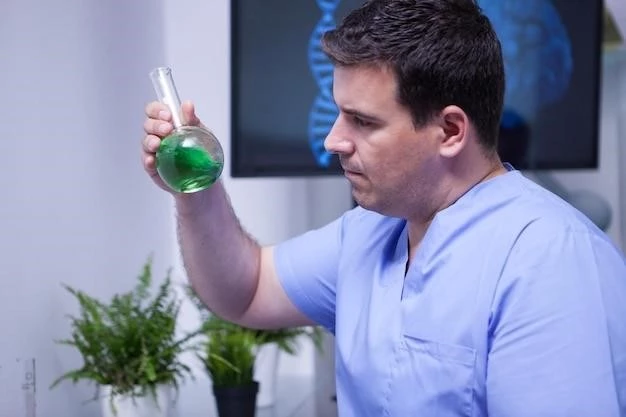Factors Contributing to the Development of 17 Alpha Hydroxylase Deficiency
17 Alpha Hydroxylase Deficiency is primarily caused by mutations in the CYP17A1 gene, which provides instructions for making an enzyme crucial for hormone production. Genetic alterations disrupt the enzyme’s function, leading to a deficiency in key hormones such as cortisol and sex hormones.
Another contributing factor can be autoimmune conditions where the body’s immune system mistakenly attacks the adrenal glands, affecting hormone synthesis. In rare cases, 17 Alpha Hydroxylase Deficiency may result from certain medications or infections affecting the adrenal glands’ function.
Understanding these factors is essential for accurate diagnosis and appropriate management of the condition. Research continues to explore the intricate mechanisms underlying the development of 17 Alpha Hydroxylase Deficiency, aiming to improve treatment outcomes and quality of life for individuals affected by this genetic disorder.
Manifestations of 17 Alpha Hydroxylase Deficiency
Manifestations of 17 Alpha Hydroxylase Deficiency often include a range of symptoms related to hormonal imbalances. Individuals with this condition may experience ambiguous genitalia at birth due to abnormal hormone levels affecting sexual development. In childhood٫ delayed puberty٫ short stature٫ and high blood pressure may manifest.
Adolescents and adults can present with irregular menstruation in females٫ infertility٫ low potassium levels٫ and hypertension. Some individuals may exhibit symptoms of excess male hormones٫ such as virilization in females or feminization in males. These manifestations vary in severity and can impact physical and reproductive health.
Early detection and prompt intervention are crucial in managing the symptoms of 17 Alpha Hydroxylase Deficiency and improving overall well-being. Close monitoring and multidisciplinary care are essential for addressing the diverse clinical presentations associated with this genetic disorder.
Evaluation and Testing for 17 Alpha Hydroxylase Deficiency
Evaluating and testing for 17 Alpha Hydroxylase Deficiency involves assessing hormone levels, genetic testing to identify mutations in the CYP17A1 gene, and imaging studies to evaluate adrenal gland structure and function. Blood tests measuring hormone levels, including cortisol, sex hormones, and mineralocorticoids, help in diagnosing the condition.
Genetic testing plays a critical role in confirming the genetic basis of 17 Alpha Hydroxylase Deficiency. Imaging techniques such as ultrasound or MRI enable visualization of the adrenal glands to assess their size and any abnormalities. Additionally, specialized tests like the ACTH stimulation test may be conducted to evaluate adrenal function.
Accurate evaluation and testing are pivotal in establishing a definitive diagnosis of 17 Alpha Hydroxylase Deficiency, guiding appropriate treatment strategies, and monitoring disease progression. Collaborative efforts between endocrinologists, geneticists, and imaging specialists enhance the precision and reliability of diagnostic procedures for this rare genetic disorder.
Therapeutic Interventions for Managing 17 Alpha Hydroxylase Deficiency
Therapeutic interventions for managing 17 Alpha Hydroxylase Deficiency focus on addressing hormonal imbalances and associated symptoms. Hormone replacement therapy plays a key role in restoring deficient hormones such as cortisol and sex hormones, aiding in normal growth, development, and reproduction.
Individuals may require medications to regulate blood pressure, manage electrolyte imbalances, and reduce the risk of complications such as hypertension. Lifestyle modifications, including a balanced diet, regular exercise, and stress management, can complement medical treatments and enhance overall well-being.
Close monitoring by healthcare providers, including endocrinologists and genetic counselors, is essential to adjust treatment regimens based on individual responses and evolving needs. Collaborative care ensures comprehensive management of 17 Alpha Hydroxylase Deficiency, aiming to optimize health outcomes and enhance quality of life for affected individuals.
Outcomes and Prognostic Factors for Individuals with 17 Alpha Hydroxylase Deficiency
The prognosis of 17 Alpha Hydroxylase Deficiency varies based on several factors, including the severity of hormone deficiencies, timely diagnosis, and adherence to treatment regimens. Early detection and intervention can lead to improved outcomes, minimizing the impact of hormonal imbalances on growth, development, and overall health.
Prognostic factors such as the presence of associated complications like hypertension, electrolyte imbalances, and fertility issues can influence long-term health outcomes. Comprehensive management strategies aimed at addressing both hormonal imbalances and symptom control are crucial in optimizing the prognosis for individuals with this genetic disorder.
Regular monitoring, including hormone level assessments and imaging studies, assists in disease management and early identification of any potential complications. Collaborative care involving endocrinologists, genetic counselors, and other healthcare professionals plays a significant role in enhancing the prognosis and quality of life for individuals living with 17 Alpha Hydroxylase Deficiency.
Genetic Factors and Inherited Traits Associated with 17 Alpha Hydroxylase Deficiency
17 Alpha Hydroxylase Deficiency is predominantly caused by autosomal recessive mutations in the CYP17A1 gene٫ leading to impaired enzyme function. These genetic alterations disrupt the conversion of cholesterol to hormones in the adrenal glands and gonads٫ affecting cortisol٫ mineralocorticoids٫ and sex hormone production.
Individuals inherit one mutated copy of the CYP17A1 gene from each parent٫ resulting in the manifestation of the disorder. The inheritance pattern of 17 Alpha Hydroxylase Deficiency follows Mendelian genetics٫ highlighting the importance of genetic counseling for families at risk of passing the genetic trait to offspring.
Understanding the genetic underpinnings of this condition is fundamental in both diagnosis and genetic counseling. Research on the molecular basis of 17 Alpha Hydroxylase Deficiency continues to uncover novel insights into gene regulation and potential therapeutic targets٫ offering promise for future treatment advancements and personalized management approaches.

Comprehensive Approaches to Managing 17 Alpha Hydroxylase Deficiency
Managing 17 Alpha Hydroxylase Deficiency requires a multidisciplinary approach involving endocrinologists, geneticists, and other medical specialists. Treatment focuses on hormone replacement therapy to address cortisol and sex hormone deficiencies, promoting normal growth and development.
Moreover, managing associated conditions such as hypertension and electrolyte imbalances is essential to prevent complications. Lifestyle modifications, including a balanced diet and regular exercise, complement medical interventions to enhance overall well-being.
Regular monitoring of hormone levels, blood pressure, and adrenal function aids in tracking disease progression and adjusting treatment plans accordingly. Genetic counseling is crucial for families to understand the genetic inheritance pattern and make informed reproductive decisions.
Staying informed about research advancements in 17 Alpha Hydroxylase Deficiency contributes to ongoing improvements in diagnosis, treatment, and patient outcomes, ensuring comprehensive and effective management of this rare genetic disorder.
Current Trends and Future Directions in Research on 17 Alpha Hydroxylase Deficiency
Ongoing research on 17 Alpha Hydroxylase Deficiency focuses on exploring novel therapeutic targets, enhancing diagnostic tools, and understanding the genetic mechanisms underlying the condition. Advances in gene editing technologies offer promising avenues for potential gene therapies to correct genetic defects associated with the disorder.
Researchers are also investigating the impact of 17 Alpha Hydroxylase Deficiency on various organ systems beyond the endocrine glands, shedding light on potential complications and comorbidities. Clinical trials evaluating new treatment modalities and personalized medicine approaches aim to optimize patient care and outcomes in individuals with this rare genetic disorder.
Furthermore, collaborative efforts between scientists, healthcare providers, and patient advocacy groups drive innovation and foster a deeper understanding of the pathophysiology of 17 Alpha Hydroxylase Deficiency. This multidisciplinary approach propels research advancements, paving the way for improved management strategies and better quality of life for affected individuals in the future.
